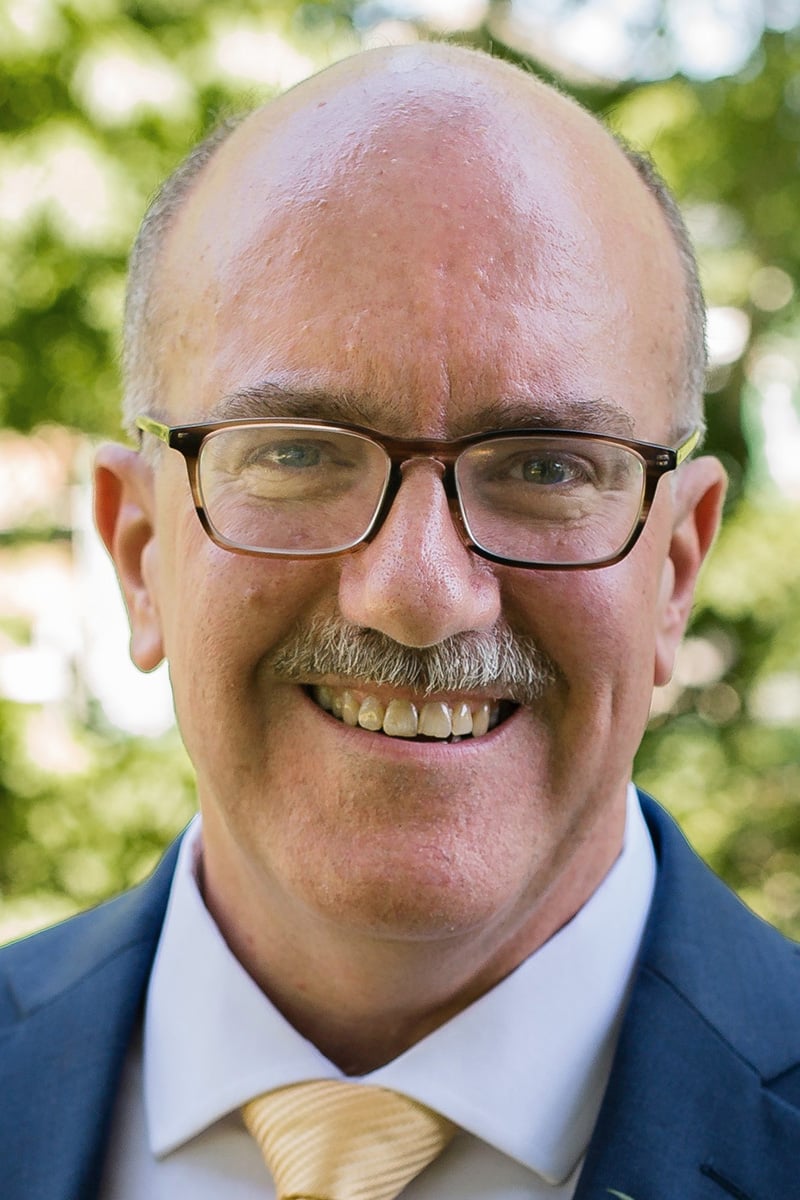
The Rev. Christopher P. Momany
Photo by Kristen Schell.
Photo by Kristen Schell.
Commentaries
UM News publishes various commentaries about issues in the denomination. The opinion pieces reflect a variety of viewpoints and are the opinions of the writers, not the UM News staff.
Over the years, the United Methodist baptismal covenant has been invoked to confront injustices throughout our world: “Do you accept the freedom and power God gives you to resist evil, injustice and oppression in whatever forms they present themselves?”
Lately I have observed calls to “resist evil” in pastoral blogs, commentaries and organizational statements.
Yet, those who now invoke the liturgy to confront evil in others sometimes forget the preceding question: “Do you renounce the spiritual forces of wickedness, reject the evil powers of this world and repent of your sin?”
Our baptism is no call to pretentious judgment. Repentance is required of us all. The liturgy was never intended to be weaponized as an indictment of others. We are all drowning in the terrifying sickness of sin, both personal and systemic.
The shameful events of violent insurrection within our nation are merely the latest installment of disregard for God’s authority in our lives. Years of ideological unwillingness to hold ourselves accountable have come home to roost. Moreover, it is intellectual laziness that relies on the inconsistency of enemies to bolster our positions. Let’s be clear: someone else’s hypocrisy does not exonerate me or those who share my opinions. The truth is a much harder school.
Jesus had a lot to say about truth, perhaps most famously in John 8:32: “… and you will know the truth, and the truth will make you free.” This text offers great hope. The truth of the gospel is found in a light that exposes our sin and then heals. Perhaps we should all commit to confessing ways we have allowed our preconceived notions to cloud our reception of God’s truth.
God’s truth stands in contrast to our truth. In our broken world, truth has become a tool of power. Those who rule try to dictate truth. My agenda, whether admirable or nefarious, sanctifies my assertions. And when one is wedded to an ideology, it becomes easy to spread unfounded conclusions. Note how quickly violence at the U.S. Capitol was blamed on forces that were not there.
This pernicious practice of distorting truth to fit our own beliefs is a temptation for us all, not just those who so brazenly perpetrated violence this year.
In Communist-era Poland, a joke often circulated in which a party boss asked, “How much is 2 + 2?” and a Polish worker responded, “How much would you like it to be?” Later, when the Solidarity movement stood for openness and human dignity, a poster read: “For Poland to be Poland, 2 + 2 must always = 4.” Free, fresh and open consideration of truth — admittedly, from many perspectives — is critical.
Almost eight centuries before Jesus, the prophet Hosea spoke to the Northern kingdom of Israel as it faced external threat from the Assyrian Empire. The people had lost sight of God’s truth, and by substituting secondary realities for God’s ultimate reality, they had weakened their ability to resist. Hosea declared that Israel had broken covenant with God and had committed perhaps humanity’s most popular sin: idolatry.
Hosea 8:7 includes the legendary phrase, “For they sow the wind, and they shall reap the whirlwind.” We trivialize such wisdom when we conclude that this means, “What goes around comes around.” The illness is more profound. By worshiping their own self-interested ideas instead of Almighty God, the people turned from truth and rejected the only source strong enough to sustain them in times of trial.
Idolatry has been a recurrent ill throughout history. Today, it is reinforced by echo chambers that produce delusions of grandeur. When wide swaths of society elevate a person to the status of God and unleash their passions, the unthinkable happens. Mobs convinced of their own infallibility become dangerous. We witnessed that recently, and we must remember that substituting one self-righteous mass of people for another is not the answer.
How are we to respond as a church? Our denomination needs to do some deep and sustained soul-searching. Our witness is strongest when we remain faithful to our identity and see in that identity an embrace of others.
What ails us and our world will not be fixed by training workshops, mind-numbing webinars or leadership gimmicks. We must immerse ourselves in a theologically centered conversation about sin and grace and a commitment to authentic truth and reconciliation.
We must stand under the whole baptismal liturgy and repent of our sin, even as we commit to resist evil.
Momany is a former college professor and chaplain. He serves as pastor of First United Methodist Church in Dowagiac, Michigan. For three decades, he has researched the arguments for and against slavery in America’s past. His 2018 book: For Each and All: The Moral Witness of Asa Mahan (Foundery Books), traces these arguments and documents the abolitionist witness of philosopher and college president Asa Mahan.
News media contact: Tim Tanton at (615) 742-5470 or [email protected]. To read more United Methodist news, subscribe to the free Daily or Weekly Digests.
Like what you're reading? Support the ministry of UM News! Your support ensures the latest denominational news, dynamic stories and informative articles will continue to connect our global community. Make a tax-deductible donation at ResourceUMC.org/GiveUMCom.



